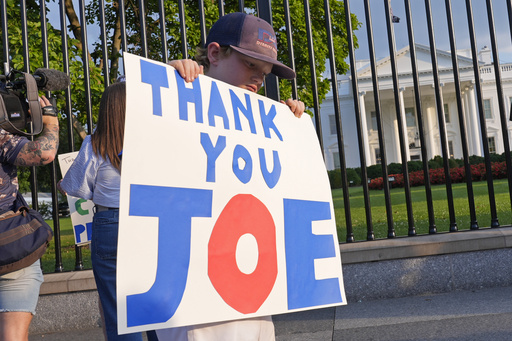President Joe Biden made his first public appearance since stepping out of the 2024 race, receiving a resounding ovation in Austin, Texas. The applause was not for his speech but for his decision to withdraw and endorse Vice President Kamala Harris. Despite facing mixed emotions such as bitterness and relief, Biden is processing the end of his political career and the rapid transition to supporting Harris as the Democratic nominee.
Biden, who reluctantly withdrew to unify the party, is dealing with feelings of political irrelevance. The quick endorsement of Harris has left him proud but also reminded him of his fading significance in the political landscape. While commended for his selfless act, Biden is still grappling with the aftermath of his decision.
Following his withdrawal, Biden has been focusing on policy briefings and securing his legacy before his term ends in 2025. The dwindling relevance of his role is evident in his decreased public appearances and the shifting dynamics in his relationship with Vice President Harris, who is now taking a more prominent position.
Despite struggling with the “what-ifs” of his decision, Biden has expressed support for Harris and the party’s efforts to defeat Donald Trump. As Harris garners significant enthusiasm and support, Biden is adjusting to his evolving role in the political sphere and the possibility of Harris becoming the Democratic nominee.
While trying to remain magnanimous outwardly, Biden’s aides have acknowledged concerns about his lingering frustrations potentially surfacing. His recent comments alluded to past tensions with former President Obama, who played a role in nudging Biden towards exiting the race. As Biden navigates this transition, he continues to grapple with the end of his long political career and the uncertainties that lie ahead.


